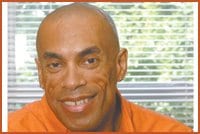The long-cherished vision of a queer community centre for Ottawa may be dying from a lack of support.
It’s been a dream project for years: a bricks-and-mortar building. A place to house youth groups, social and health outreach programs and staff, perhaps even activist organizations and the gay paper. And a concrete anchor and claim to queer space and a gay neighbourhood.
An informal spring survey of queer university students even found that many of them would not consider staying in Ottawa after graduation until it could boast an actual queer centre.
But queer Ottawa’s dream threatens to crash on the rocks of the Rideau unless fresh blood – with much-needed administrative and fundraising skills – joins the committee overseeing the project. Current volunteers are just about burnt out – and they’ve called an emergency community meeting Aug 16 to figure out what’s next. And to take the feedback to the community’s meeting with the mayor on Aug 25.
The call for a community summit emerged at the Jun 8 meeting of the spearheading committee. Members came to one inescapable conclusion: if Ottawa’s queer community wants to have a community centre, the community has to get involved.
“We looked at where we were in terms of bricks and mortar,” says Lyle Borden, chairperson of the community centre’s fundraising committee. “One of the things we realized right away was that there’s not enough community involvement. It was the same people on the committee doing all the work. We said that at this point, we need community involvement. We need commitment, we need bodies.”
Already, the committee has contacted the list of queer organizations, groups and businesses that they assembled during the previous planning phases.
“We need people on the committee who are willing to devote time to the committee,” Borden says. “We need people with certain skills – people with project management skills, people with fundraising skills, people who are used to putting together a business strategy – things like that.”
New volunteers would join with existing board members to get the project moving again. There’s room on the board for fresh blood; several members have quit in recent weeks.
“We’re at the point now where we really need to put forward a very good fundraising strategy,” says Borden. “Therefore we need people, we need ideas, we need expertise in the area, and to get people to tap into the funding side of it from various levels of government.”
The committee also needs help with plans for an online version, a comprehensive and well-maintained virtual centre. Development of the online centre has been kicked off under the aegis of Pink Triangle Services, but expert help is needed. The committee hopes to see the online centre emerge as a complement to the bricks and mortar centre. Until the building is acquired, the online centre would help people connect with the services they need.
The committee needs “people who can maintain the website, who can be there to assist in making sure that it’s up to date, getting the community groups involved, the organizations solidified,” says Borden.
Ottawa’s queer community runs on volunteers. So why the shortage for the community centre project?
“There seems to be a bit of apathy towards involvement and support for a lot of things,” Borden muses. “We’re wondering if people are feeling as if they are growing away from the core issues, and we’re wondering if people feel as though they’ve made it. We’ve made a lot of strides – we can get married now – but that doesn’t mean the battle’s over.
“I personally am a little worried that people are sitting back and saying, ‘We’ve come a long way, we’ve made it,’ and sort of living in a complacent manner, that you don’t have to support the community, that it doesn’t really involve you. People find out very quickly when their rights are infringed upon that yes, it does involve you.”
In the event of crises within the gay community, the current fragmentation of groups and individuals can mean that the necessary support mechanisms won’t be in place. If the mainstream can get away with one act within a complacent community, they can try to chip away at more rights until it may be too late.
Despite the community’s clear preference for a bricks-and-mortar centre, Borden says the committee is starting to look at other options if they cannot attract sufficient volunteers.
“We’re trying to stress the fact that yes, you may not necessarily need a bricks-and-mortar community centre, but you need a centre. Some type of centre where there’s a consolidated set of activities, information and support.”
The results of the summit will be taken to the annual Mayor’s Forum. At last summer’s forum, mayor Bob Chiarelli promised city support for a centre once the community had rallied support. Meanwhile, the committee is preparing for the eventuality that Ottawa’s queer community won’t step up to give the necessary support.
“Five or six people can’t do it,” Borden says. “You can’t expect the same few people to do everything and to take on something as huge as this project. You need the community involvement, and without the community, there’s no centre.”


 Why you can trust Xtra
Why you can trust Xtra


